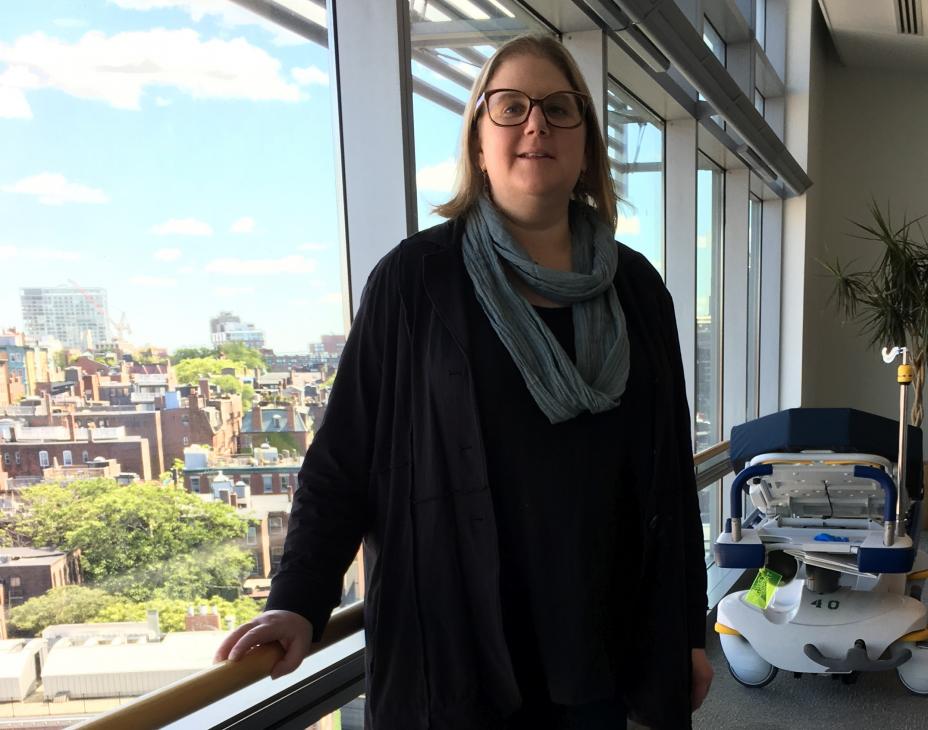Hear candid conversations between people conquering cancer – patients, their family and friends, and doctors and researchers working to help us all.

A self-proclaimed control freak, Lisa tells her oncologist, Dr. Don Dizon, how she endured the pain and the exhausting uncertainty of treatment and recovery.
No Journey Is the Same
“You know, everybody thinks, ‘Oh, you have cancer, you get chemo and that's how you treat it.' And for me, it was sort of different...," said Lisa.
The boarding school teacher was 37 when she learned she had cancer. Though she survived a range of treatments – chemotherapy, radiation, a stem cell transplant, and immunotherapy – Lisa says the emotional toll was just as challenging as the physical pain.
“I don't know how to describe it, but when you lose control of your body and you're a person that’s always in control, it's a big blow to your psyche,” she said.
Lisa was not anticipating a reoccurrence or a second diagnosis. She assumed her experience would be the same as other people she knew who had completed treatment and moved on.
“I was always kind of itching to get back into work and back with my friends and, you know, live a normal life doing things that people my age were doing, getting married, moving up in their careers, having kids, buying houses and all that,” Lisa shared.
Letting Others In
Lisa was not ready for the ways her second diagnosis would inspire her to openly share her story and embrace the support family and friends were providing. Always independent, cancer forced her to rely on others for help and healing.
“I didn't want to be quiet with it anymore,” Lisa said. “And so this was like opening my tent up and sort of saying OK, you people can come in and be in this with me.”
Making Plans
Lisa needed that support when she became very ill. She discusses being forced to think about planning for the end and the delicate ways she and her parents navigated difficult moments. But, ultimately, Dr. Dizon's care plan was successful. In a special moment between doctor and patient, Dr. Dizon tells Lisa how personal her case became to him and his colleagues and the joy they felt when they'd finally stopped her cancer from spreading.
“I remember we went to your surgeon,” recalled Dr. Dizon, “and she saw no evidence of cancer. And it was the only time that I think, I know everybody involved in your cancer care actually cried a little.”
“That makes me want to cry,” said Lisa.
“Well, you know, it's one of the things that we hide from the people we treat that we do get quite emotional," revealed Dr. Dizon.
Disclaimer
The purpose of this podcast is to educate and to inform. The podcast is provided on the understanding that it does not constitute medical or other professional advice or services. It is no substitute for professional care by a doctor or other qualified medical professional and is not intended for use in the diagnosis or treatment of individual conditions. Guests who speak in a podcast express their own opinions, experience, and conclusions. Neither Conquer Cancer, the ASCO Foundations, nor any of its affiliates endorses, supports, or opposes any treatment option or other matter discussed in a podcast. The mention of any product, service, organization, activity, or therapy on a podcast should not be construed as an endorsement. View disclosures for Don Dizon and Lisa Geller.
A teacher shares what she learned when her cancer treatments didn’t go as she or her doctors expected.